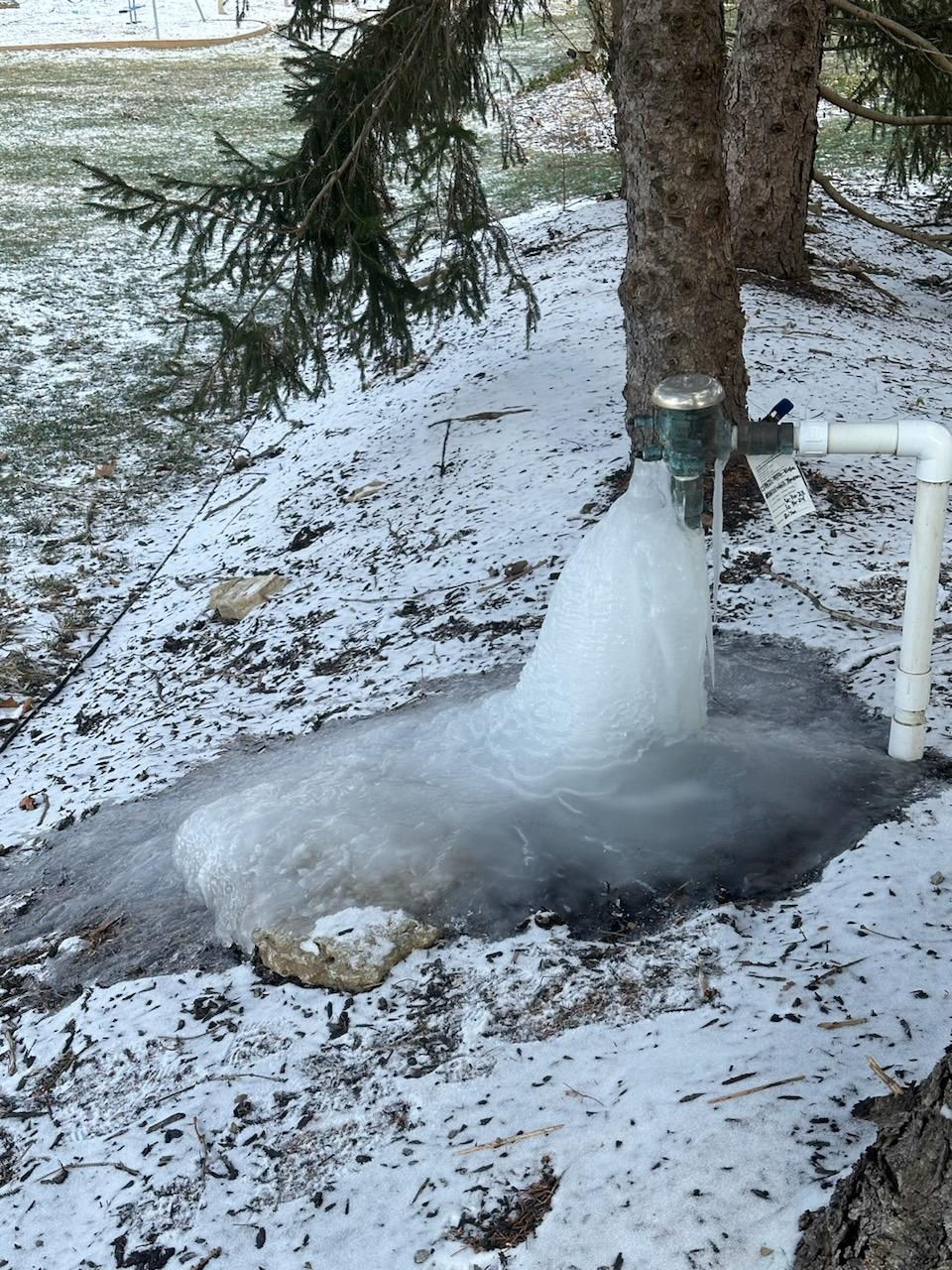Why Winterizing your Irrigation system is Important
- service28796
- Nov 5, 2024
- 2 min read

Failing to winterize your irrigation system before the onset of freezing temperatures can lead to various issues and potential damage. Here are some consequences of not winterizing your irrigation system:
Freezing Damage: The most significant risk is freezing damage to the irrigation components. Water left in the pipes, valves, and sprinklers can freeze during cold weather, causing the water to expand and potentially rupture pipes and fittings. This can result in costly repairs and replacements.
Cracked Pipes and Fittings: When water freezes inside the irrigation system components, it creates pressure that can lead to cracks or fractures in pipes and fittings. This damage may not be immediately apparent but can cause leaks and system failures when the system is reactivated.
Damage to Valves: Frozen water can damage irrigation valves, preventing them from functioning correctly. This can result in difficulties controlling water flow, leading to uneven watering or the inability to turn off specific zones.
Broken Sprinklers: Sprinkler heads and nozzles are particularly vulnerable to freezing temperatures. If water is not drained from these components, the ice expansion can cause them to crack or break. This compromises the efficiency and coverage of the sprinkler system.
Controller Malfunctions: The controller or timer of the irrigation system can be affected by freezing temperatures. Water entering the controller housing can freeze, causing electrical and mechanical components to malfunction. This may result in the need for repairs or replacement of the controller.
Soil Erosion: If the irrigation system is not properly winterized, it may inadvertently activate during freezing temperatures. Watering frozen ground can lead to runoff and soil erosion. Additionally, ice patches may form on walkways, creating safety hazards.
Increased Water Bills: A damaged or malfunctioning irrigation system may lead to water wastage and increased water bills. Leaks and inefficient water distribution can occur when the system is not properly winterized and subsequently reactivated without inspection.
Landscape Damage: Overwatering due to a malfunctioning irrigation system can damage plants and landscaping. Inconsistent watering patterns, caused by frozen or damaged components, may result in dry spots and stressed vegetation.
System Inoperability: The cumulative effects of freezing damage can render the entire irrigation system inoperable. This may require extensive repairs and potentially a complete overhaul of the system, leading to significant expenses.
Spring Start-Up Challenges: Neglecting winterization can make it more challenging to start up the irrigation system in the spring. Accumulated debris, sediment, and damaged components may impede proper functioning, requiring additional effort and resources to get the system back in working order.
To avoid these issues and protect your investment, it is crucial to follow proper winterization procedures for your irrigation system, including draining water from pipes, valves, and sprinklers, as well as shutting off the water supply to the system. Consulting with a professional irrigation specialist such as Sprinklers Plus for winterization is recommended to ensure thorough and effective preparation for the winter months.

Comments